For Many Journalists, the Issue Is Personal
(Mister Mann Frisby, Jonathan Capehart, Courtland Milloy, Elvia Diaz, David Gonzalez, Yvonne Latty, Barbara A. Reynolds, Emil Guillermo)
Essence Festival Also Aimed to Recharge Magazine
What’s Happening to the Diversity Officers?
ESPN Laying Off High-Profile Commentators While HBO Cancels Bomani Jones
Why It Hurts Not to Have Blacks on Key Beats
Bilingual Newspaper Reimagines Journalism
Ozy’s Watson Calls Fraud Investigation Biased
Short Takes: Current office-holding descendants of enslavers; Stanton Tang; Bobby Henry and Black press association; Buffalo Soldiers documentary; Kelli Taylor; Sonia Clark and Military Veterans in Journalism; Pierre Thomas; Mary C. Curtis, Erin Chan Ding, Sarah Cortez and Solomon Crenshaw Jr.; Britain’s Debbie Ramsay; abuse of journalists in Venezuela, Ecuador, Hong Kong and Egypt.
Homepage illustration: Polis
Support Journal-ismsDonations are tax-deductible.
- New! Facebook fundraiser
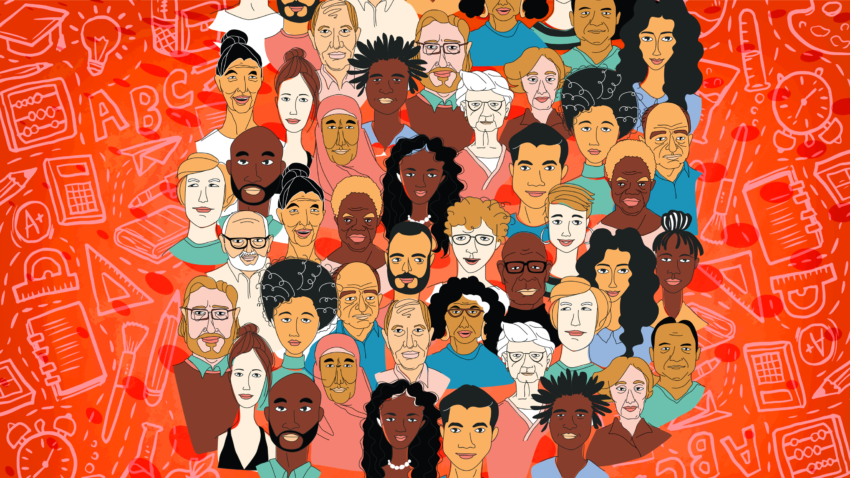
For Many Journalists, the Issue Is Personal
Emil Guillermo, a Filipino American columnist, wrote this advice after the Supreme Court decision striking down race as a factor in college admissions: “On college applications, don’t say race; tell your story. Tell your race story. That has always been our best shot.”
Chief Justice John Roberts, in the court’s June 29 decision, said, “Nothing in this opinion should be construed as prohibiting universities from considering an applicant’s discussion of how race affected his or her life, be it through discrimination, inspiration or otherwise.” That came with this caveat: “But, despite the dissent’s assertion to the contrary, universities may not simply establish through application essays or other means the regime we hold unlawful today.”
Some affirmative action opponents want more. Julian Mark and Eli Tan reported for The Washington Post, “Now that the Supreme Court has struck down the use of race-conscious admissions at colleges and universities, conservative groups and legal experts say the private sector should get ready for more challenges to their diversity, equity and inclusion, or DEI, initiatives.”
And Robin Vos, Republican speaker of the Wisconsin State Assembly suggested he’ll move to ban grants designated for minority undergraduate students.
Some journalists of color are already telling their affirmative action stories:
‘I’m So Much Better Than All of You’
By Mister Mann Frisby, posted on Facebook
When I was a junior at Penn State, word got back to me that some of my fellow journalism classmates had called an emergency meeting with the assistant dean to discuss little ole me.
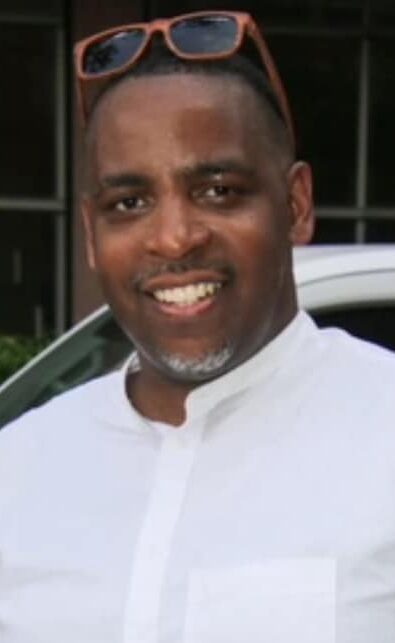 I had just finished an eight-week internship at a New Jersey newspaper. I drove 90 minutes each way every day to Asbury Park [N.J.] from North Philly for those two months and work/wrote my ass off.
I had just finished an eight-week internship at a New Jersey newspaper. I drove 90 minutes each way every day to Asbury Park [N.J.] from North Philly for those two months and work/wrote my ass off.
Well, the others were upset with the assistant dean, who is my complexion, because they said he hooked me up with that internship without posting it for them to apply as well.
I was not invited or informed about that grievance meeting, but y’all already know…
So I slid into the back of the room and listened as my peers spoke to him about how unfair it was that I got an “advantage“ over them. After listening for a bit, and boiling inside, I stood up and interrupted all that shit.
“I want y’all to understand this. I did not get that internship because I’m Black. And I damn sure didn’t hear about it here on campus. I was informed about that gig by my mentors back in Philadelphia. They thought that I was qualified, being as though I’ve had published bylines since I was a 17-year-old senior in high school. Also, just so we’re clear, I’m so much better than all of you. It’s not even close. I read all of your articles in the Daily Collegian and most of you are just OK. That’s why you’re not in the mix to get an internship on that LEVEL. Next time y’all have a meeting about me make sure I’m invited.”
Afterward, I went right to the Pizza Hut buffet on College Ave and ain’t thought about them people since.
My full ride may have been affirmative action-related, but trust and believe I still had to grind for eight semesters and finish on time so that I would be in position to secure a journalism gig…WHICH I DID.
In my experience, it’s always been the most basic and unremarkable people who are always on the balls of their feet over AA. The comments on this fancy ass intranet over the last few days have shown that.
Mister Mann Frisby describes himself as an author, event curator and filmmaker. “The newspaper was the Asbury Park Press and it was summer of 1995. I was a police reporter and then features writer from 1997-2000 at the Philadelphia Daily News,” he says.
‘I Wouldn’t Be Sitting in This Seat’
Jonathan Capehart on the “PBS NewsHour”:
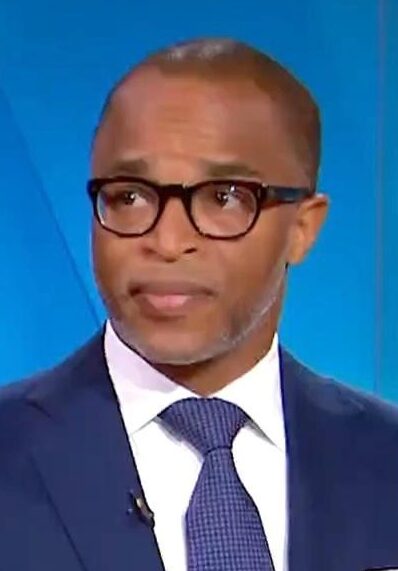 This is another Supreme Court decision that hits me personally. Were it not for affirmative action . . . I wouldn’t be sitting in this seat. I wouldn’t be with David Brooks. I would not have gotten the great education I got at Carleton College.
This is another Supreme Court decision that hits me personally. Were it not for affirmative action . . . I wouldn’t be sitting in this seat. I wouldn’t be with David Brooks. I would not have gotten the great education I got at Carleton College.
‘White People Who . . . Turned Out to Be Normal, Decent’
By Courtland Milloy, Washington Post, native of Shreveport, La.:
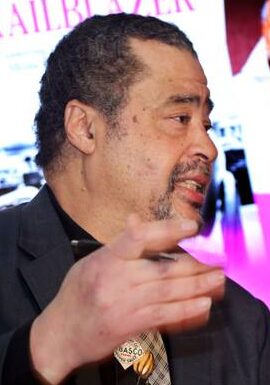 One immediate benefit of this affirmative-action-propelled adventure was meeting White people who, much to my surprise, turned out to be normal, decent human beings. Where I’d come from, that was not something you could take for granted. . . .
One immediate benefit of this affirmative-action-propelled adventure was meeting White people who, much to my surprise, turned out to be normal, decent human beings. Where I’d come from, that was not something you could take for granted. . . .
Some White colleagues have declared, as if revealing a shocking secret, that I was an affirmative action hire. So what? I think they are, too.
‘They Were Harder on Me to Prove I Deserved the Privilege’
By Elvia Diaz, Arizona Republic and azcentral.com
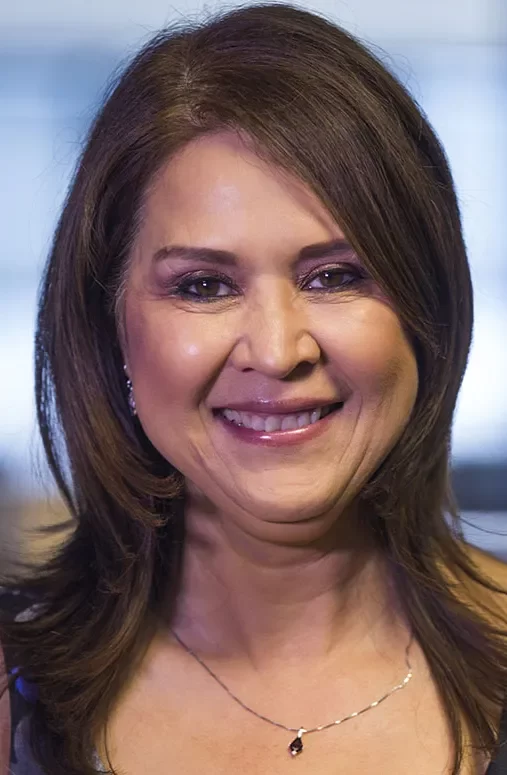 I wouldn’t be here without affirmative action.
I wouldn’t be here without affirmative action.
And no, I don’t think the graduate admission gurus at the University of California, Berkeley, let me in just out of pity because I was a poor immigrant with a low IQ.
I had the brains and grades to prove I could do that work, but somehow state universities where I had gotten my bachelor’s degree were no match against Ivy League schools that dominated admissions at the time.
It never mattered whether people thought I was there just because of my race. I knew it wasn’t true.
The only thing that mattered was the fact that I was in and given the chance to compete academically with my classmates.
My professors didn’t give me a break or a better grade because of my race. On the contrary, I felt they were harder on me to prove I deserved the privilege of being there.
No matter. I welcomed the challenge, and anything thrown at me. . . .
Elvia Díaz is editorial page editor for the Arizona Republic and azcentral.com. Her column was republished in USA Today.
How I Learned to Be Puerto Rican at Yale
By David Gonzalez, New York Times, via Facebook
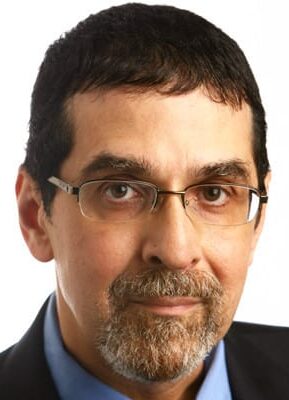 For better or worse these places shaped us. They also left us to our own devices (raised by wolves, anyone?). In my case, the shock of arriving at Yale led me to explore and then embrace my working class Puerto Rican identity, something that a lot of us hadn’t really thought about before then. But we, too, shaped the place as best we could. Some of us still are in touch with current students. And while our ranks have thinned, the core group of affirmative-action babies remains in touch. . . .
For better or worse these places shaped us. They also left us to our own devices (raised by wolves, anyone?). In my case, the shock of arriving at Yale led me to explore and then embrace my working class Puerto Rican identity, something that a lot of us hadn’t really thought about before then. But we, too, shaped the place as best we could. Some of us still are in touch with current students. And while our ranks have thinned, the core group of affirmative-action babies remains in touch. . . .
David Gonzalez describes himself as “Writer, photographer and editor with deep experience in print and multimedia locally, nationally and in Latin America and the Caribbean.” Full posting at the end of this column.
‘Seems Like Just Blow After Blow These Days. Please Vote.’
By Yvonne Latty, Temple University, via Facebook:
‘ I know I am where I am today because of affirmative action, and even with that it has been really, really hard.
I know I am where I am today because of affirmative action, and even with that it has been really, really hard.
So few of my generation were able even to be in a position to slide into a barely cracked door. I went from totally Black and Brown spaces as kid to NYU, where I was usually the only Black/Brown person in the classroom, which was so hard for me.
I have lived with the motto “be 10x better just to stay afloat.” It’s a hard way to live but the only way if you are me Black/Latino, daughter of immigrants from the inner city, zero privilege, zero connections, zero $$. My parents did not even graduate high school.
I could clearly see what was going to happen to me if I didn’t work like hell and grab every opportunity. I thought, hoped and prayed that it would just keep getting better for those who came up behind me, that the country would see how affirmative action helped so many of us and how we have been productive citizens.
But now I have no idea how BIPOC are supposed to live their best lives when it always seems like just blow after blow these days. Please vote. It has never been more important to be engaged. (Added July 11)
Yvonne Latty is director and professor, Center for Urban Investigative Reporting, Temple University
Told That ‘Colored Women Should Not Be Journalists’
By Barbara A. Reynolds, via Facebook
Before affirmative action, things were pure hell.
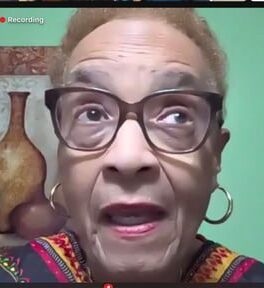 In 1965, my application to enter Ohio State University’s journalism school was blocked by the dean, who simply said colored women should not be journalists.
In 1965, my application to enter Ohio State University’s journalism school was blocked by the dean, who simply said colored women should not be journalists.
I pushed and was accepted. When I graduated, many newspapers simply said, “We don’t hire Negroes.” I pushed and finally got a job at the Chicago Tribune. The editor who hired me said he had never heard of a Black woman who could write or report, but they were hiring me because of pressure from Black groups.
Once in, it was very hard to excel. I worked hard and was eventually promoted to the Washington Bureau to cover the White House’s urban policy. In the bureau I was treated like a pariah; the white staff would not eat with me nor answer my questions about the city. They would say we will be glad when a woman comes to this bureau, which relegated me invisible because I was both Black and female.
It should not be this hard for whites to accept Blacks as human beings. Racist institutions will use the Supreme Court to hold us back, but we have much more going for us now than we did in the ’60s. We know we have to fight White Supremacist policies that intend to destroy us.
We must march, we must protest, we must fight inside institutions that want to keep us out, we must take our dollars out of states that discriminate against us and support those who are for us. President Biden and his administration are on our side, we have the Congressional Black Caucus, many Black lawyers, judges and educators, and whites who are not racists.
We still have the same God that got us this far. Now that we are convinced the haters will destroy us, we know we cannot cooperate with evil. Fight back.
Rev. Dr. Barbara A. Reynolds is author of “My Life, My Love, My Legacy, the Memoirs of Coretta Scott King”; book coach, Washington Post blogger, and chaplain for Black Women for Positive Change.
‘I Had Failed in My Original Race Mission’
By Emil Guillermo, columnist, Asian American Legal Defense and Education Fund:
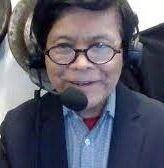 Guillermo also said in his column, written for the Asian American Legal Defense and Education Fund, that in one sense affirmative action was a personal failure.
Guillermo also said in his column, written for the Asian American Legal Defense and Education Fund, that in one sense affirmative action was a personal failure.
“Chief Justice John Roberts was at Harvard the same time I was there. And I realized I had failed in my original race mission back in the ’70s. My mere presence at ‘that school in Boston’ did not persuade young Roberts of the merits of diversity.
“What about the mutual benefits of having an underprivileged Filipino kid as part of the student body at Harvard? Because I was not just there to take. I was there to give to America’s future leaders, like Roberts, a real world understanding beyond white preppie-dom, and to help him build the kind of empathy he’d need to have as a chief justice of the United States. . . .”
- Perry Bacon Jr. and Christine Emba, Washington Post: Two Black columnists discuss college after affirmative action
- Moriah Balingit, Washington Post: ‘Invisible’: Some Asian Americans say admissions decision is no victory
- Wayne Bennett, Field Negro: The Supremes strike again.
- Collin Binkley, Associated Press: Supreme Court’s affirmative action ruling leaves colleges looking for new ways to promote diversity
- Kevin B. Blackistone, Washington Post: SCOTUS’s affirmative action decision: Ball or bust for Black athletes
- Hayes Brown, MSNBC: College admissions still won’t be a meritocracy
- Leonard Greene, Daily News, New York: Conservatives who say Supreme Court ruling helps Blacks by removing ‘stigma’ of affirmative action are wrong
- Michael Harriot, theGrio: There’s no such thing as ‘race neutral’
- Roy S. Johnson, al.com: Black people are used to this; we will overcome SCOTUS’s affirmative action ruling
- Solomon Jones, Philadelphia Inquirer: Affirmative action is racial justice. The Supreme Court ruling is a step backward.
- Lisa Philip, WBEZ Boston: How Asian Americans got wrapped up in the affirmative action debate — and why many want out
- Laura Cathcart Robbins, HuffPost: Here’s Why The End Of Affirmative Action Will Be Devastating For People Like Me
- Eugene Robinson, Washington Post: Why do colleges need affirmative action? America’s past and present.
- Fabiola Santiago, Miami Herald: SCOTUS delivers ‘a rude awakening’ to Blacks and Latinos with big-time college dreams (paywall)
- Frank Shyong, Los Angeles Times: A question for Asian Americans celebrating affirmative action’s end: What have we won?
- Devontae Torriente and Ty Parks, Philadelphia Inquirer: Affirmative action is gone. Here’s how to keep fighting.
- Toure, theGrio: Black people will not truly be free until we have reparations
- Yvette Walker, Kansas City Star: In a post-race admissions world, getting into college will depend on individuality
- Michael Paul Williams, Richmond (Va.) Times-Dispatch: The Supreme Court’s affirmative action ruling is the latest right-wing attack on antiracism
The 29th Essence Festival of Culture saluted Black women, highlighted Black music and culture and staged conversations with thought leaders on empowerment. (Credit: Associated Press video by Stephen Smith)
Essence Festival Also Aimed to Recharge Magazine
The Essence Festival of Culture, now a New Orleans institution in its own right but also a key component in the financial fortunes of the company that produces Essence magazine, returned over the weekend.
It featured a change of direction from R&B music to hip-hop, appearances by a contingent from the Biden administration and a flap that pitted the festival against a local Black bookstore.
The festival won. Essence shut down a Black author event at Baldwin & Co. The shop was planning to host a mini-festival on Friday, with a block party, food trucks and other vendors.
“But on June 25, Essence, citing violations of its trademark and of a new ‘clean zone’ local law limiting competition, sent the bookstore a cease-and-desist order,” Joni Hess reported Saturday for NOLA.com. “It said the planned event was an ‘apparent scheme to mislead Black authors, artists and guests’ by selling admission tickets, whereas Essence does not charge for its own author events. Baldwin attorney Katie Schwartzmann said no authors were charged for the store appearance.”
On Monday, “amid negative publicity and backlash,” Essence dropped its lawsuit against the store.
But were there any doubt about which party carries more clout with the city, Mayor LaToya Cantrell said: “While this event cancellation and miscommunication is unfortunate, the city and Essence remain committed to uplifting and celebrating Black culture and creators.”
One reason: Missy Wilkinson reported Friday for NOLA.com, “This year, New Orleans & Co. spokesperson Kelly Schultz predicts a $200 to $300 million economic impact. The caliber of visiting dignitaries and celebrities — including Vice President Kamala Harris and Oprah Winfrey — adds to the event’s clout.”
NOLA.com’s Keith Spera provided the bigger picture Friday. “For much of its history, it focused on classic R&B and largely ignored hip-hop,” Spera wrote.
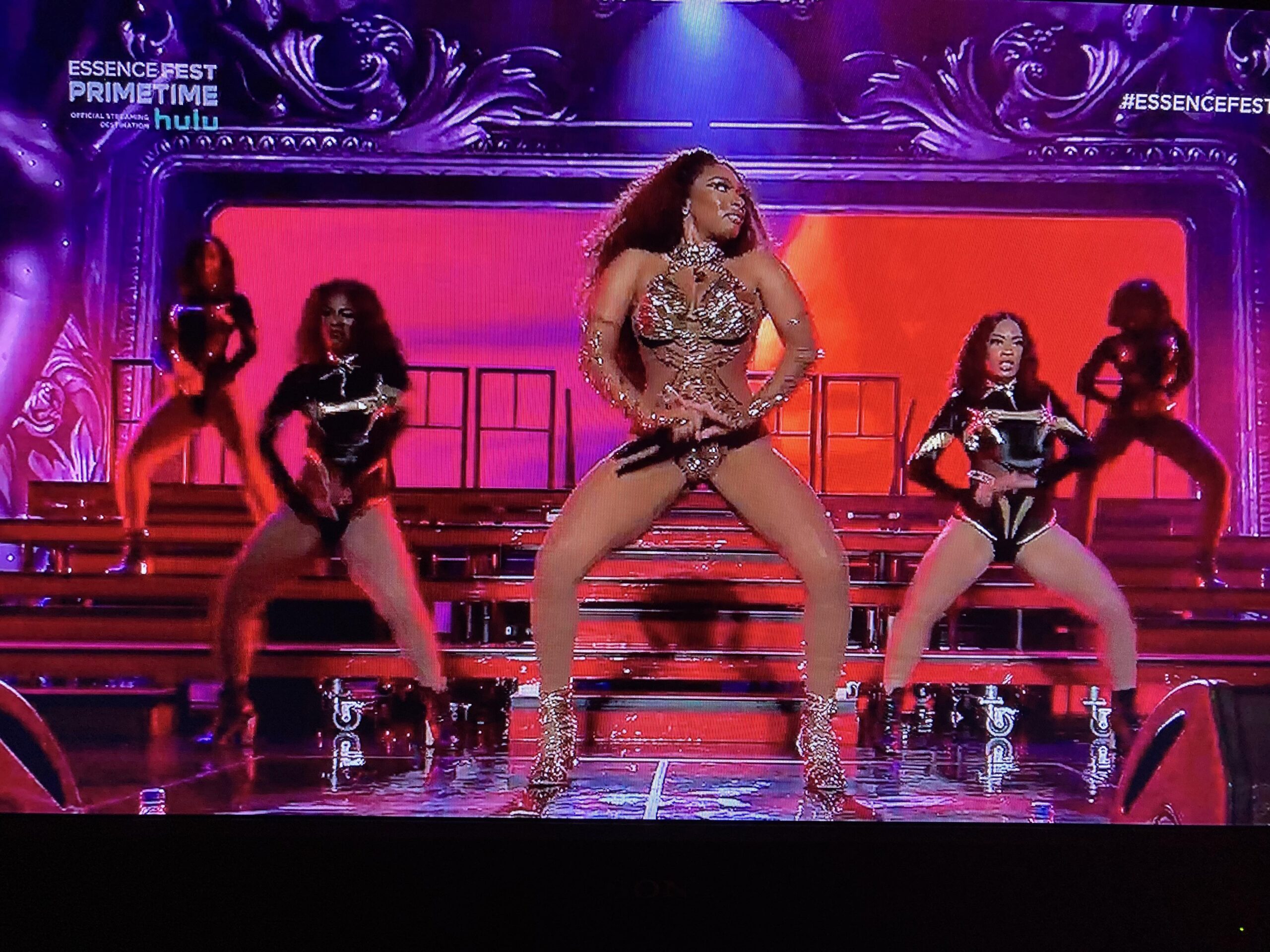 “By contrast, the entire 2023 festival celebrates hip-hop’s 50th anniversary. For the first time, female rappers — Ms. Lauryn Hill, Missy Elliott and Megan Thee Stallion (pictured) — headline the three nights of Superdome concerts. Hulu streamed the concerts all three nights.
“By contrast, the entire 2023 festival celebrates hip-hop’s 50th anniversary. For the first time, female rappers — Ms. Lauryn Hill, Missy Elliott and Megan Thee Stallion (pictured) — headline the three nights of Superdome concerts. Hulu streamed the concerts all three nights.
The festival went live last year after being virtual during the COVID pandemic, but “This year is the real reboot,” Spera continued.
The 2023 edition “is the first to fully reflect the forward-leaning vision of Caroline Wanga and Hakeem Holmes.
“Wanga is president and CEO of Essence Ventures, the parent company of the 29-year-old festival and its 53-year-old namesake magazine.
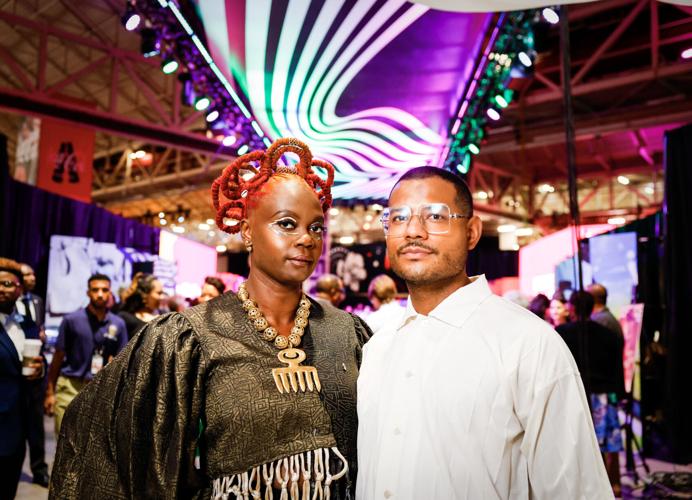
“Hired in 2020, she is charged with revitalizing the entire Essence brand.
“Last fall, Essence appointed Holmes, a 30-year-old New Orleans native and St. Augustine High School graduate, as the company’s first-ever vice president focused specifically on the festival.
“Wanga, Holmes and an almost entirely new executive team are orchestrating a generational shift at Essence Fest. . . .”
Liberian-born Essence Ventures owner Richelieu Dennis announced in January 2018 that he had acquired Essence Communications from Time Inc.
“Change came, sometimes with turmoil,” Spera continued. “Of the more than 100 names on the Essence magazine masthead in January 2020, only six remain, Wanga said.
“ ‘We’ve had about 90% turnover since January 2020,’ she said. ‘We have a new executive leadership team that is really driving this next vision.’
“They sought to ‘re-anchor’ Essence Fest. ‘And when you are touching a cultural artifact that has been around for almost three decades, you are upsetting everybody,’ Wanga said. ‘All the sacred cows are gonna clap back.’ ”
 In addition to celebrating hip-hop’s 50 years, the festival spotlighted Biden administration officials in panel discussions.
In addition to celebrating hip-hop’s 50 years, the festival spotlighted Biden administration officials in panel discussions.
According to the White House announcement Thursday, “Biden-Harris Administration officials, led by Vice President Kamala Harris, will participate in the Global Black Economic Forum. . . . Harris will participate in a moderated conversation on the impact of initiatives from the Biden-Harris Administration that are dedicated to advancing economic opportunity. . . .”
Other sessions were to feature Environmental Protection Agency Administrator Michael Regan and Treasury Secretary Janet Yellin, and a discussion of the availability of federal government jobs. Wearing what fashion reporters called her power suit, Harris also denounced recent Supreme Court rulings.
- Dominique Fluker, Forbes: ESSENCE Taps Danielle Cadet As Executive Editor And Vice President Of Content (Dec. 2, 2022)
- Journal-isms: Blavity Rises to Most Popular Black Website (Essence.com is No. 6) (March 8)
- Okla Jones, Essence: Star Gazing: Celebs Spotted Around Town During The 2023 ESSENCE Festival Of Culture
- Melissa Noel, Essence: EFOC [Essence Festival of Culture]: ‘We Are Not Going To Step Back’. Political Experts Weigh In On Building Black Wealth And Power Through Voting And Policy
- Kaylee Poche, Gambit: Essence Fest blocks Black literary event at Baldwin & Co. bookstore
- Kaylee Poche, Gambit: Celebrate Black hair at these Essence Fest weekend events starting Friday, June 30 (June 27)
- Nimi Princewill, CNN: One of the world’s largest festivals of Black culture is devoting a day to Nollywood for the first time
- Chevel Johnson Rodrigue, Associated Press: Yellen addresses Essence Festival crowd, discusses economy, efforts to enfold minority communities
- Rivea Ruff, Essence: Megan Thee Stallion Shuts Down ESSENCE Festival Of Culture With A Crowd-Rocking Performance
- Keith Spera, NOLA.com: A Lil Wayne surprise, Megan Thee Stallion, Tems, Wizkid close the 2023 Essence Festival
What’s Happening to the Diversity Officers?
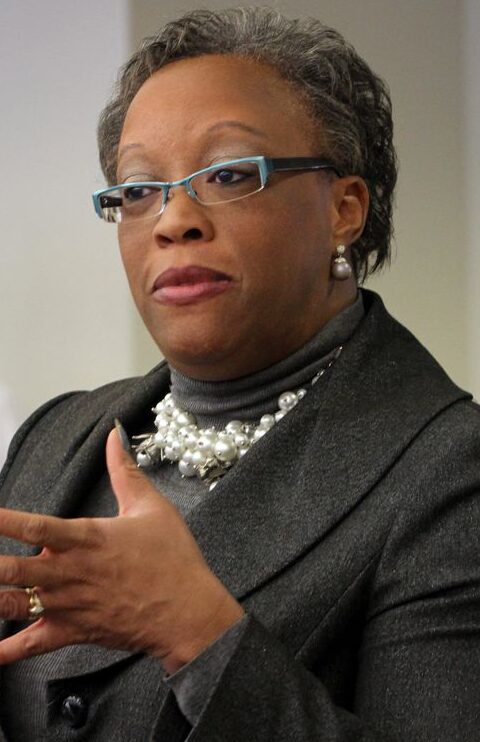 A Washington Post story about cuts at National Geographic notes a job loss that is seeming increasingly familiar. “Among those who lost their jobs in the latest layoff was Debra Adams Simmons (pictured), who only last September was promoted to vice president of diversity, equity and inclusion at National Geographic Media, the entity that oversees the magazine and website,” Paul Farhi wrote Wednesday.
A Washington Post story about cuts at National Geographic notes a job loss that is seeming increasingly familiar. “Among those who lost their jobs in the latest layoff was Debra Adams Simmons (pictured), who only last September was promoted to vice president of diversity, equity and inclusion at National Geographic Media, the entity that oversees the magazine and website,” Paul Farhi wrote Wednesday.
Adams Simmons, former editor at the Plain Dealer in Cleveland and board member of the Maynard Institute for Journalism Education, became the magazine’s executive editor for culture in 2017. She took a role in diversity initiatives and was credited internally with recruiting new writers of color. Adams Simmons had a hand in the 2018 mea culpa in which the magazine dedicated its April issue to the topic of race and publicly acknowledged the publication’s long story of racism in its coverage of people of color in the United States and abroad.
The Disney-owned National Geographic laid off all of its last remaining staff writers, 19 in all, and is relying on freelancers.
Simmons has company. “Warner Bros. Discovery is laying off Karen Horne, a diversity, equity and inclusion executive,” The Hollywood Reporter confirmed June 30.
Caitlin Huston’s Hollywood Reporter story also noted, “the layoff comes amid a trend of departures from DEI [diversity, equity and inclusion] positions in the industry. Earlier this week, Netflix disclosed that Vernā Myers, who worked on the company’s inclusion and diversity initiatives for the past five years, would be departing the company in September. She will be succeeded by her vp, Wade Davis.
 “Last week, Disney confirmed that Latondra Newton (pictured), the company’s chief diversity officer, would be leaving after a six-year run. The entertainment giant is searching for a new chief to fill her position.”
“Last week, Disney confirmed that Latondra Newton (pictured), the company’s chief diversity officer, would be leaving after a six-year run. The entertainment giant is searching for a new chief to fill her position.”
 The same day, Christy Pina reported elsewhere in the publication, “Jeanell English (pictured) has resigned from her role as executive vp impact and inclusion at the Academy of Motion Picture Arts and Sciences a year after beginning in that position. . . .
The same day, Christy Pina reported elsewhere in the publication, “Jeanell English (pictured) has resigned from her role as executive vp impact and inclusion at the Academy of Motion Picture Arts and Sciences a year after beginning in that position. . . .
On Wednesday, Clayton Davis reported for Variety that “On Monday, Joanna Abeyie, the BBC’s creative diversity director, joined their ranks. And even though the steady stream of departures is alarming, multiple industry sources tell Variety that more BIPOC executives are expected to join them in the coming weeks.”
If there is good news in these reports, it is that in some of these cases the positions remain, available to be filled by someone else.
Stephen A. Smith addresses the ESPN layoffs Tuesday on “First Take,” saying “I could be next” and that Black people should take nothing for granted. (Credit: YouTube)
ESPN Laying Off High-Profile Commentators
While HBO Cancels Bomani Jones
“ESPN is laying off around 20 high-profile sports commentators as part of a cost-cutting initiative, a source with knowledge of the layoffs told CNN,” Nathaniel Meyersohn and Jon Passantino reported Friday for CNN.
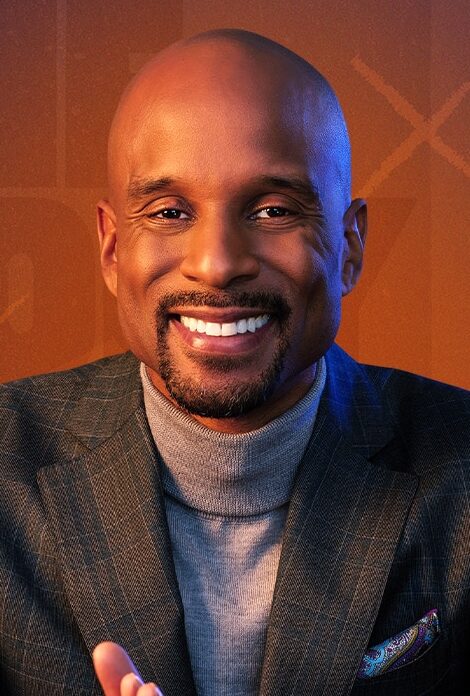 In a separate development, “HBO has canceled Game Theory with Bomani Jones,“ (pictured) Bobby Burack reported Monday, updated Tuesday for Outkick, citing three sources. Awful Announcing confirmed the development, and Deadspin’s Carron J. Phillips blasted the cancellation, saying that, “For some odd reason, viewers — and the powers that be — are still entertained by and have stuck to the idea that being loud and wrong, while yelling at the person sitting across from you is what makes ‘good TV’ in sports.”
In a separate development, “HBO has canceled Game Theory with Bomani Jones,“ (pictured) Bobby Burack reported Monday, updated Tuesday for Outkick, citing three sources. Awful Announcing confirmed the development, and Deadspin’s Carron J. Phillips blasted the cancellation, saying that, “For some odd reason, viewers — and the powers that be — are still entertained by and have stuck to the idea that being loud and wrong, while yelling at the person sitting across from you is what makes ‘good TV’ in sports.”
CNN reported that at ESPN, “Among those let go were Max Kellerman, Keyshawn Johnson, Jeff Van Gundy, Jalen Rose and LaPhonso Ellis, the source said. Suzy Kolber also announced she had been laid off.
“The cuts to Disney’s global workforce are part of a multibillion-dollar cost-cutting initiative aimed at streamlining the company’s operations. The company reported operating profit grew 56%, to $12.1 billion, in 2022. . . .
“All of these commentators are under contract, the person familiar with the matter told CNN, all have an opportunity to explore other options despite their contracts, this person said. . . .”
Disney, which owns ESPN, is laying off 7,000 employees.
- Andrew Bucholtz, Awful Announcing: Jalen Rose also hit by ESPN layoffs
- Richard Deitsch, the Athletic: Jeff Van Gundy layoff a brutal call by ESPN and a big shake-up for NBA media
- Ryan Glasspiegel, New York Post: Stephen A. Smith speaks out about shocking ESPN layoffs: ‘Deserved better’
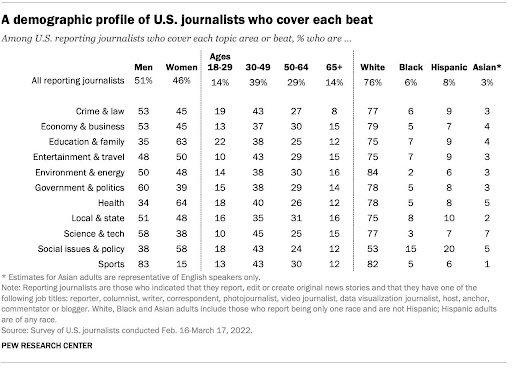
Why It Hurts Not to Have Blacks on Key Beats
A significant lack of Black journalists covering key beats “is particularly harmful to the lived experiences and even life expectancies of Black people when it comes to reporting on health, the economy, and criminal justice,” Nyasia Almestica and Collette Watson (pictured) wrote Thursday for the Black Wall Street Times, based in Tulsa, Okla., and Atlanta.
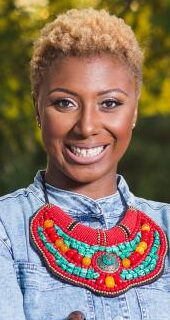 Watson works with Media 2070, a “media reparations” project of the media advocacy group Free Press, and Almestica calls herself a junior publicist and “fellow underdog,” among other descriptions.
Watson works with Media 2070, a “media reparations” project of the media advocacy group Free Press, and Almestica calls herself a junior publicist and “fellow underdog,” among other descriptions.
The two cite a Pew Research Center survey released in April of nearly 12,000 working U.S.-based journalists.
“One reporting area particularly stands out by the race and ethnicity of the journalists who cover it: social issues and policy. Hispanic and Black journalists make up a greater portion of those who cover this beat (20% and 15%, respectively) than any other studied,” Pew’s Emily Tomasik and Jeffrey Gottfried reported.
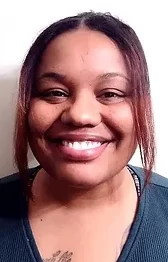 Watson and Almestica (pictured) itemized the consequences of low Black participation on other key beats.
Watson and Almestica (pictured) itemized the consequences of low Black participation on other key beats.
“According to the study, just 5 percent of Black journalists cover health beats, a disturbing revelation given that in 2020, 97.9 out of every 100,000 African Americans had died from COVID-19, a rate higher than that of Latinos and more than double that of white and Asian people,” they said.
“The glaring absence of Black journalists in health reporting disregards diverse perspectives on the catastrophic impact of diseases like COVID-19 on disenfranchised communities. . . .”
On the economy, “only 5% of Black journalists, 7% of Hispanic journalists, and 4% of Asian journalists cover the economic beat. Black people are less likely to invest, and why? Because many don’t know how. . . . ” This furthers the generational wealth gap.
On crime reporting, “Far too often, the media fails to acknowledge the perspectives of Black journalists in addressing systemic injustices that persist and contribute to Black people’s distrust of the news media, including its misrepresentation and vilification of Black families as poor and fatherless. . . .
“Public perception is often shaped by reporters lacking lived experiences that can connect with marginalized groups, proving the media’s obsession with sensationalizing Black stories rather than supporting Black journalists to tell them accurately. . . .” They expanded on all three points.
- Anissa Durham, Word in Black: Black Men Are Shifting the Mental Health Narrative
- Lauren Kaori Gurley and Federica Cocco, Washington Post: Black women are finding better jobs than ever. A recession could reverse that.

Bilingual Newspaper Reimagines Journalism
“More than a dozen domestic workers and day laborers took to the stage in March to educate fellow community members about their rights, particularly around sick leave. The performance was part of a reporting series produced by El Tecolote Newspaper, one of the oldest news organizations serving San Francisco’s heavily Latino Mission District,” Tracie Powell wrote Friday for the Pivot Fund.
“While nervous performers worried about missed lines, Fatima Ramirez, who leads El Tecolote as Executive Director of Accion Latina, saw the bigger picture. This was a representation of tías and tíos [“While these literally mean ‘uncle,’ and ‘aunt,’ they’re also used informally to generally refer to another person.“] owning their narratives, and also presenting the information in a way that made it more accessible to those who need it most.
“Founded in 1970 by journalist and professor Juan Gonzalez, El Tecolote was created to holistically reflect the experiences and perspectives of the Latino community, which is still often ignored by traditional media. . . .”
Ozy’s Watson Calls Fraud Investigation Biased
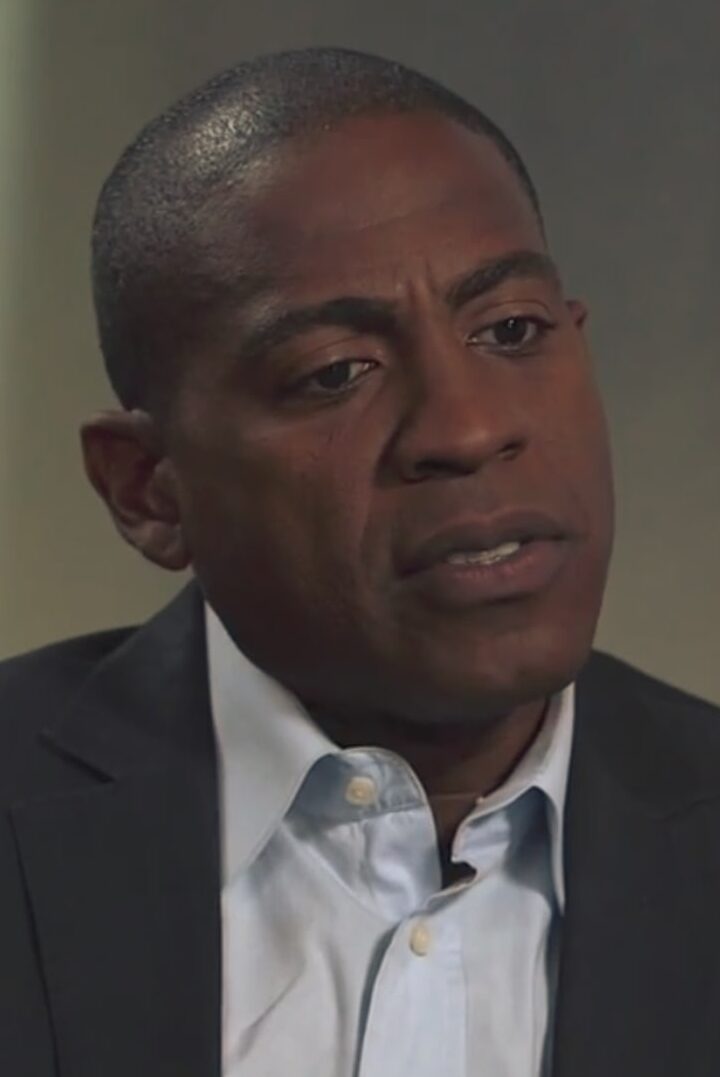 “Carlos Watson (pictured), the co-founder of Ozy Media, is loudly claiming on social media and in a well-produced video that he has been targeted as a Black entrepreneur in the mostly white tech world,” Lauren Victoria Burke reported Monday for the National Newspaper Publishers Association.
“Carlos Watson (pictured), the co-founder of Ozy Media, is loudly claiming on social media and in a well-produced video that he has been targeted as a Black entrepreneur in the mostly white tech world,” Lauren Victoria Burke reported Monday for the National Newspaper Publishers Association.
“Ozy collapsed after Watson was indicted for fraud in February 2023. Federal prosecutors alleged that Watson and his company defrauded investors out of ‘tens of millions.’ Prosecutors claim that Watson ran a company that was a fraudulent scheme to fool financial supporters based on false information about Ozy.
“But in the tech world, over-inflating user data and success is generally standard practice. Watson is arguing that his prosecution is racially [biased] and that he was using often used tactics by tech entrepreneurs.
“ ‘The U.S. legal system criminalizes the actions of black #entrepreneurs such as OZY Media Founder Carlos Watson while giving their white counterparts a pass. Black entrepreneurs receive 1% of venture funding and 51% of the prosecution,’ wrote Watson on social media on June 21.
“Watson’s legal defense team is asking the Department of Justice to conduct a racial bias investigation on the Brooklyn prosecutors who are working on his case. . . .”
Short Takes
- “In researching the genealogies of America’s political elite, a Reuters examination found that a fifth of the nation’s congressmen, living presidents, Supreme Court justices and governors are direct descendants of ancestors who enslaved Black people,” Tom Lasseter, Lawrence Delevingne, Makini Brice, Donna Bryson, Nicholas P. Brown and Tom Bergin reported June 27 for Reuters. “Among 536 members of the last sitting Congress, Reuters determined at least 100 descend from slaveholders. Of that group, more than a quarter of the Senate – 28 members – can trace their families to at least one slaveholder. . . .” The Washington Post produced a similar report last year, focusing on members of Congress.
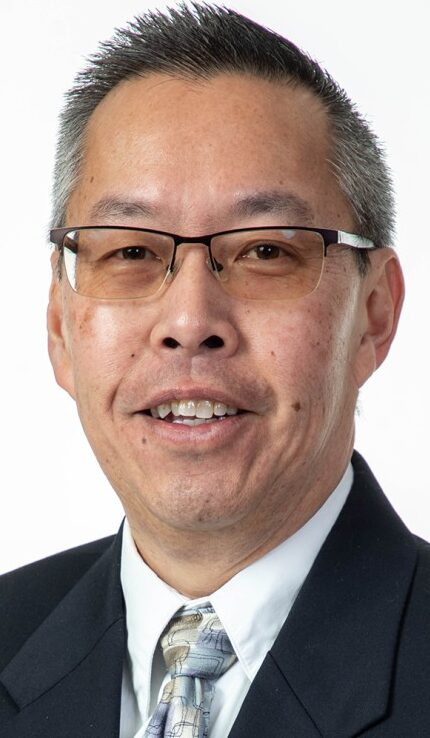 “Nexstar Media Group has fired one of its Michigan-based television news directors who orchestrated a memo urging reporters under his watch to lessen their coverage of Pride Month events because the stories were upsetting some viewers,” Matthew Keys reported Thursday for TheDesk.net. “On Thursday, WOOD-TV (Channel 8, NBC) News Director Stanton Tang (pictured) learned of his dismissal during a one-on-one meeting with the station’s general manager, Julie Brinks, following a two-week investigation by executives at Nexstar over whether the memo violated corporate policy. While Tang and Brinks were meeting, the station’s office manager packaged his personal items and cleaned out his office, according to a source inside WOOD-TV’s newsroom. He was escorted out of the building a short time later. . . .”
“Nexstar Media Group has fired one of its Michigan-based television news directors who orchestrated a memo urging reporters under his watch to lessen their coverage of Pride Month events because the stories were upsetting some viewers,” Matthew Keys reported Thursday for TheDesk.net. “On Thursday, WOOD-TV (Channel 8, NBC) News Director Stanton Tang (pictured) learned of his dismissal during a one-on-one meeting with the station’s general manager, Julie Brinks, following a two-week investigation by executives at Nexstar over whether the memo violated corporate policy. While Tang and Brinks were meeting, the station’s office manager packaged his personal items and cleaned out his office, according to a source inside WOOD-TV’s newsroom. He was escorted out of the building a short time later. . . .”
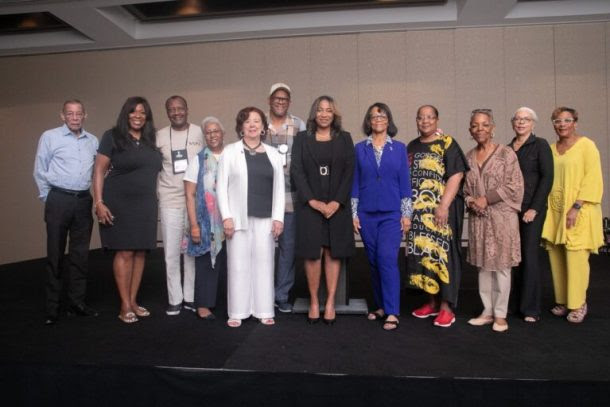
- “Bobby Henry, the publisher of the Westside Gazette in Fort Lauderdale, Fla., won the election as chair of the National Newspaper Publishers Association (NNPA) during the organization’s 2023 convention in Nashville, Tenn.,” Stacy M. Brown reported for NNPA. “Dr. Frances Draper, publisher of The Afro-American newspaper in Baltimore and Washington, will serve as 1st Vice Chair, while Jackie Hampton, publisher of The Mississippi Link, earned election as 2nd Vice Chair. Fran Farrer, the publisher of The County News in Charlotte, N.C., was elected Secretary, and Cheryl Smith, publisher of The Texas Metro News and CEO of IMessenger Media, will serve as Treasurer. Denise Rolark Barnes, publisher of The Washington Informer, and Walter L. White of The Cincinnati Herald will serve as At-Large Board Members. . . .” President Biden spoke to the group by video.
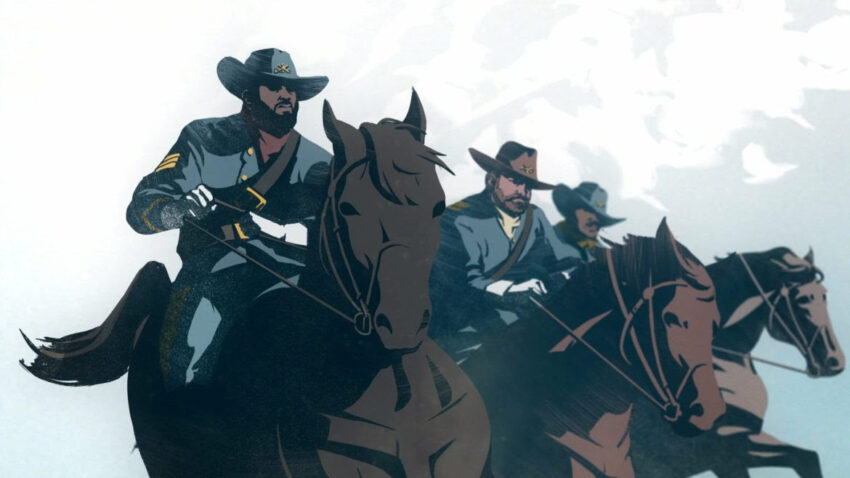
- “Buffalo Soldiers: Fighting on Two Fronts . . . . premiered on PBS June 12 and on World, the multicast channel from GBH in Boston, on Juneteenth,” Julian Wyllie reported Thursday for Current. Dru Holley’s film “came to public television through a diversity, equity and inclusion initiative created by PBS in 2021. Chief Programmer Sylvia Bugg set aside funds for an open call for proposals from diverse filmmakers. The effort was a response to filmmakers who challenged PBS to work with more filmmakers and came at a time when directors and producers were openly discussing how difficult it is to acquire funding to complete their public television documentaries. . . .”
 Kelli Taylor (pictured), a former anchor at KCTV in Kansas City, “has alleged she was denied opportunities due to her race and sex during her final three years working for the station in a Kansas District Court discrimination lawsuit,” Matt Gellman reported Thursday for the Kansas City Star. “She also accused her employers of punishing her for taking time off to attend to an anxiety-related disability that she developed while working for the news channel, according to the lawsuit petition filed Monday. . . . She is seeking at least $75,000 in damages as a preliminary amount so that the lawsuit can be filed in federal court.”
Kelli Taylor (pictured), a former anchor at KCTV in Kansas City, “has alleged she was denied opportunities due to her race and sex during her final three years working for the station in a Kansas District Court discrimination lawsuit,” Matt Gellman reported Thursday for the Kansas City Star. “She also accused her employers of punishing her for taking time off to attend to an anxiety-related disability that she developed while working for the news channel, according to the lawsuit petition filed Monday. . . . She is seeking at least $75,000 in damages as a preliminary amount so that the lawsuit can be filed in federal court.”
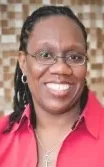 Sonia Clark, “a photojournalist, videographer and written journalist with a love of storytelling,” has been chosen as one of three veterans to join its local newsrooms as part of the McClatchy Veterans in Journalism Fellowship program, Military Veterans in Journalism announced Wednesday. Clark, an Army veteran and Air Force Reservist, is to begin her fellowship with The Island Packet in Hilton Head, S.C.. in September.
Sonia Clark, “a photojournalist, videographer and written journalist with a love of storytelling,” has been chosen as one of three veterans to join its local newsrooms as part of the McClatchy Veterans in Journalism Fellowship program, Military Veterans in Journalism announced Wednesday. Clark, an Army veteran and Air Force Reservist, is to begin her fellowship with The Island Packet in Hilton Head, S.C.. in September.
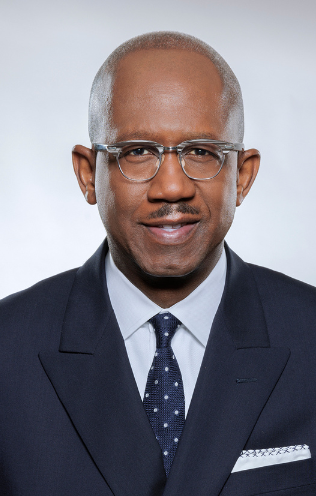 “RTDNA is thrilled to announce that Pierre Thomas (pictured), Chief Justice Correspondent for ABC News, will be honored with the prestigious Paul White Award at RTDNA23,” the Radio Television Digital News Association announced Thursday. “The Paul White Award, our highest honor, recognizes individuals who have made significant contributions to electronic journalism throughout their careers. Pierre Thomas is an exceptional journalist who has consistently delivered thorough, accurate, and ethical reporting on some of the most crucial stories of our time, including 9/11, the election of President Barack Obama, the Boston Marathon bombing, and the Jan. 6 attack on the Capitol, among many others.” The presentation takes place in Minneapolis Sept. 22.
“RTDNA is thrilled to announce that Pierre Thomas (pictured), Chief Justice Correspondent for ABC News, will be honored with the prestigious Paul White Award at RTDNA23,” the Radio Television Digital News Association announced Thursday. “The Paul White Award, our highest honor, recognizes individuals who have made significant contributions to electronic journalism throughout their careers. Pierre Thomas is an exceptional journalist who has consistently delivered thorough, accurate, and ethical reporting on some of the most crucial stories of our time, including 9/11, the election of President Barack Obama, the Boston Marathon bombing, and the Jan. 6 attack on the Capitol, among many others.” The presentation takes place in Minneapolis Sept. 22.
- Mary C. Curtis, columnist for Roll Call; Erin Chan Ding, Illinois freelance journalist; Sarah Cortez, a Latina poet, teacher, editor and essayist from Houston; and Solomon Crenshaw Jr., a freelance journalist in Alabama, were among winners of the National Federation of Press Women’s professional communications contest.
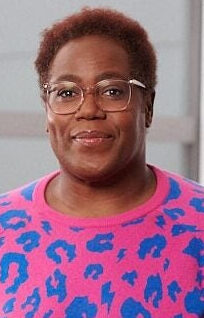 ITN, best known for producing news programming for major U.K. broadcasters, “has appointed Debbie Ramsay as the new editor of 5 News, succeeding Cait Fitzsimons, Bron Maher reported Monday for Press Gazette. “Ramsay joins from Channel 4, where she is commissioning editor for news and current affairs. She previously spent 16 years at the BBC, most recently as the executive editor with responsibility for commissioning original journalism. Her time at the corporation also took in roles overseeing the BBC’s youth journalism output across multiple formats. . . .” A March study from the Ethical Journalism Network reiterated that “Racism is ‘commonplace’ in the UK journalism industry, which needs more Black people in senior positions and more race correspondents to improve diversity of coverage,” the Independent reported then.
ITN, best known for producing news programming for major U.K. broadcasters, “has appointed Debbie Ramsay as the new editor of 5 News, succeeding Cait Fitzsimons, Bron Maher reported Monday for Press Gazette. “Ramsay joins from Channel 4, where she is commissioning editor for news and current affairs. She previously spent 16 years at the BBC, most recently as the executive editor with responsibility for commissioning original journalism. Her time at the corporation also took in roles overseeing the BBC’s youth journalism output across multiple formats. . . .” A March study from the Ethical Journalism Network reiterated that “Racism is ‘commonplace’ in the UK journalism industry, which needs more Black people in senior positions and more race correspondents to improve diversity of coverage,” the Independent reported then.
- “In the context of the celebration of Journalists’ Day, June 27, press workers in Venezuela celebrate their day facing constant challenges and threats. Among violations of freedom of expression are: Acts of censorship, intimidation, harassment, and blockades of digital news outlets,” LatAm Journalism Review reported June 27, via Runrunes. “Although the practice of journalism in Venezuela is guaranteed by Articles 57 and 58 of the National Constitution and the Law on the Practice of Journalism, the government itself has been the main obstacle to the enjoyment of this right, as evidenced by the challenges and threats faced by press workers. . . .”
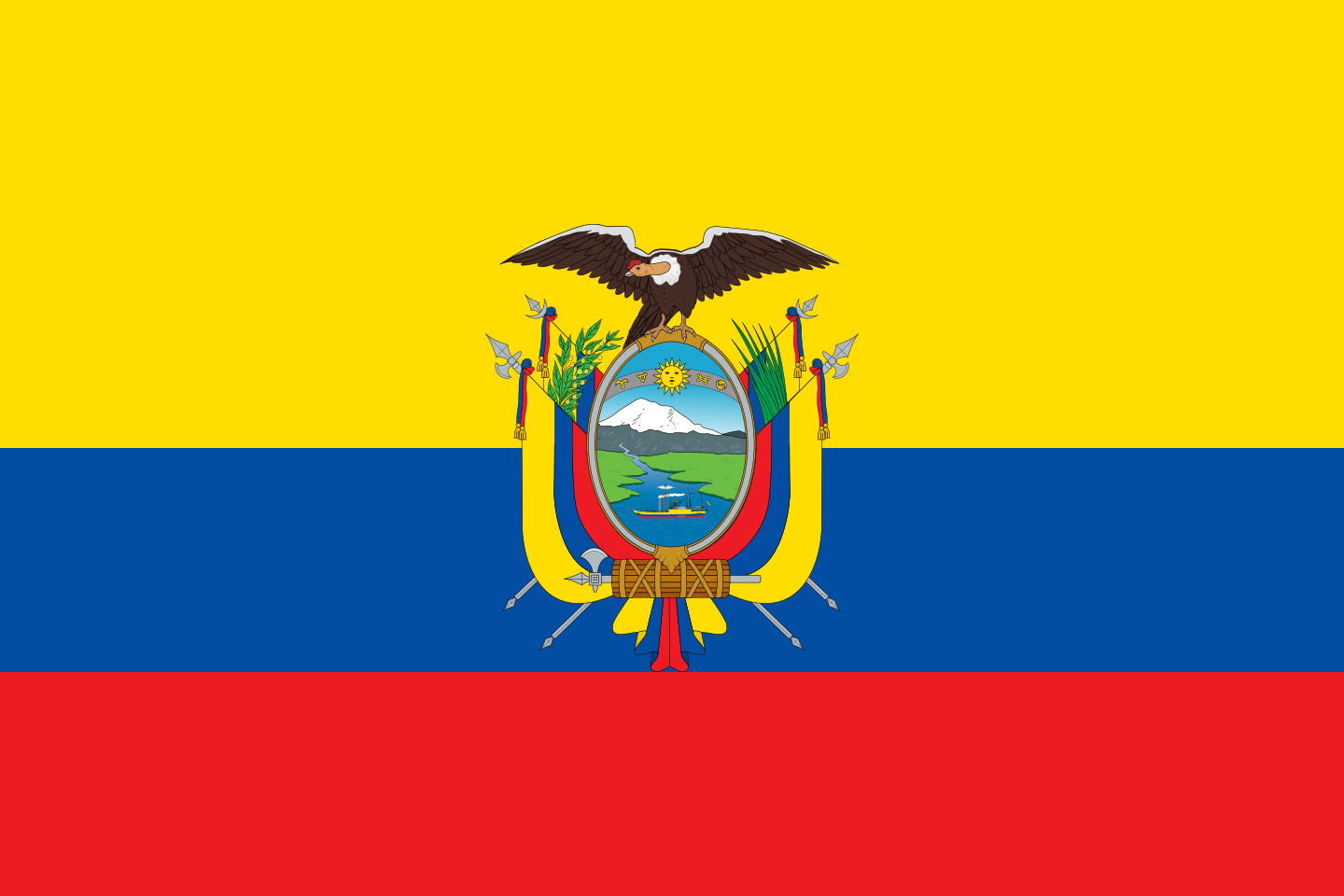 “Two journalists forced to flee due to death threats in a single month; explosive devices mailed to multiple broadcasters; reporters compelled to be accompanied by law enforcement in order to cover violent areas; and entire communities turned into so-called ‘silent zones,’ where the press is intimidated from working,” the Committee to Protect Journalists reported June 28. “Developments like these portend a grim outlook for press freedom in Ecuador, a country facing a spike in violence against journalists amid a security crisis with no precedent in recent history. . . .”
“Two journalists forced to flee due to death threats in a single month; explosive devices mailed to multiple broadcasters; reporters compelled to be accompanied by law enforcement in order to cover violent areas; and entire communities turned into so-called ‘silent zones,’ where the press is intimidated from working,” the Committee to Protect Journalists reported June 28. “Developments like these portend a grim outlook for press freedom in Ecuador, a country facing a spike in violence against journalists amid a security crisis with no precedent in recent history. . . .”
- “Over the past three years, in line with Chinese leader Xi Jinping’s crusade against journalism, the Hong Kong government has prosecuted at least 28 media workers and press freedom defenders, 13 of whom remain in detention,” Reporters Without Borders said after a mission to Hong Kong from June 18 to 21. “The government also forcibly shut down independent daily newspapers Apple Daily and Stand News, while six other media outlets had no other choice but [to] disband due to pressure. . . .” The report was headlined, “Amid shrinking press freedom, Hong Kong journalists in need of more international support.”
 As Egyptian President Abdel Fattah al-Sisi “prepares to celebrate the 10th anniversary of his arrival to power, Reporters Without Borders (RSF) looks back at the relentless methods he has used to reshape the Egyptian media landscape in the past decade and turn Egypt into one of the world’s most oppressive countries for journalists,” the press-freedom group reported Monday. ” In the past ten years, at least 170 journalists have been jailed, dozens of others have been arbitrarily arrested and interrogated, access to more than 500 news websites has been blocked and six journalists have been killed. . . .”
As Egyptian President Abdel Fattah al-Sisi “prepares to celebrate the 10th anniversary of his arrival to power, Reporters Without Borders (RSF) looks back at the relentless methods he has used to reshape the Egyptian media landscape in the past decade and turn Egypt into one of the world’s most oppressive countries for journalists,” the press-freedom group reported Monday. ” In the past ten years, at least 170 journalists have been jailed, dozens of others have been arbitrarily arrested and interrogated, access to more than 500 news websites has been blocked and six journalists have been killed. . . .”
To subscribe at no cost, please send an email to journal-isms+subscribe@groups.io and say who you are.
Facebook users: “Like” “Richard Prince’s Journal-isms” on Facebook.
Follow Richard Prince on Twitter @princeeditor
Richard Prince’s Journal-isms originates from Washington. It began in print before most of us knew what the internet was, and it would like to be referred to as a “column.” Any views expressed in the column are those of the person or organization quoted and not those of any other entity. Send tips, comments and concerns to Richard Prince at journal-isms+owner@
View previous columns (after Feb. 13, 2016).
View previous columns (before Feb. 13, 2016)
- Diversity’s Greatest Hits, 2018 (Jan. 4, 2019)
- Book Notes: Is Taking a Knee Really All That? (Dec. 20, 2018)
- Book Notes: Challenging ’45’ and Proudly Telling the Story (Dec. 18, 2018)
- Book Notes: Get Down With the Legends! (Dec. 11, 2018)
- Journalist Richard Prince w/Joe Madison (Sirius XM, April 18, 2018) (podcast)
- Richard Prince (journalist) (Wikipedia entry)
- February 2018 Podcast: Richard “Dick” Prince on the need for newsroom diversity (Gabriel Greschler, Student Press Law Center, Feb. 26, 2018)
- Diversity’s Greatest Hits, 2017 — Where Will They Take Us in the Year Ahead?
- Book Notes: Best Sellers, Uncovered Treasures, Overlooked History (Dec. 19, 2017)
- An advocate for diversity in the media is still pressing for representation, (Courtland Milloy, Washington Post, Nov. 28, 2017)
- Morgan Global Journalism Review: Journal-isms Journeys On (Aug. 31, 2017)
- Diversity’s Greatest Hits, 2016
- Book Notes: 16 Writers Dish About ‘Chelle,’ the First Lady
- Book Notes: From Coretta to Barack, and in Search of the Godfather
- Journal-isms’ Richard Prince Wants Your Ideas (FishbowlDC, Feb. 26, 2016)
- “JOURNAL-ISMS” IS LATEST TO BEAR BRUNT OF INDUSTRY’S ECONOMIC WOES (Feb. 19, 2016)
- Richard Prince with Charlayne Hunter-Gault, “PBS NewsHour,” “What stagnant diversity means for America’s newsrooms” (Dec. 15, 2015)
- Book Notes: Journalists Follow Their Passions
- Book Notes: Journalists Who Rocked Their World
- Book Notes: Hands Up! Read This!
- Book Notes: New Cosby Bio Looks Like a Best-Seller
- Journo-diversity advocate turns attention to Ezra Klein project (Erik Wemple, Washington Post, March 5, 2014)
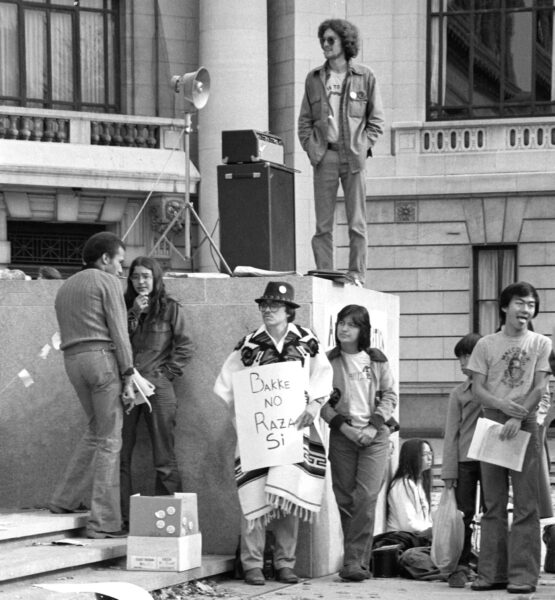
I Was an Affirmative Action Baby
Or, How I Learned to Be Puerto Rican at Yale
By David Gonzalez, New York Times, via Facebook
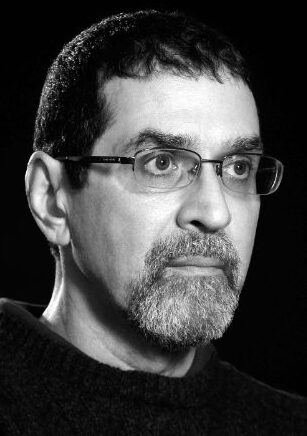 The early to mid-1970s at Yale saw the arrival of a few blue-collar Nuyorican students who had been prep-school scholarship kids. They, in turn, began to lobby/pressure the school to recruit prospects from public and Catholic high schools in predominantly Black and Latino communities. A turning point came when Eduardo Padro, a son of East Harlem who had gone to Dalton, and a handful of others protested outside the Yale Club and garnered support from Herman Badillo, the pioneering Puerto Rican congressman.
The early to mid-1970s at Yale saw the arrival of a few blue-collar Nuyorican students who had been prep-school scholarship kids. They, in turn, began to lobby/pressure the school to recruit prospects from public and Catholic high schools in predominantly Black and Latino communities. A turning point came when Eduardo Padro, a son of East Harlem who had gone to Dalton, and a handful of others protested outside the Yale Club and garnered support from Herman Badillo, the pioneering Puerto Rican congressman.
Within a year or two, admission was being offered to dozens of Puerto Rican students, mostly from working-class barrios in New York, Bridgeport, Conn., Chicago and Philly. (The school continued its longstanding practice of educating the Puerto Rican governing and business elites from the island.)
I was among the first wave of these beneficiaries of student activism and institutional noblesse oblige, showing up in New Haven in 1975, where I was welcomed by the small but growing Puerto Rican student population. Mind you, my high school in the South Bronx was seriously integrated, but the white guys I met at Yale were nothing like the hip Irish and Italian guys who had been my classmates at Cardinal Hayes.
And thus began my understanding of race and class.
Yale, for its part, wasn’t sure how to deal with us, assuming at first that simply admitting us was good enough. But the nascent Puerto Rican group on campus – along with Black, Chicano and Asian partners – pushed for not just a two-week summer orientation program (that still exists to this day), but also provided for freshman counselors for each of the ethnic student groups (I was one of these counselors in ’77-’78).
It was a much-needed step to help kids like us navigate elite – and alien – territory.
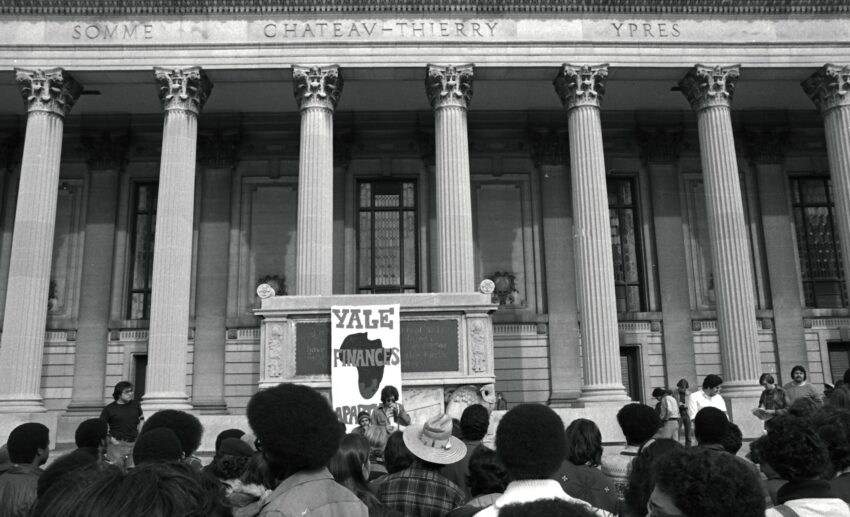
At the same time, the political atmosphere on campus reflected continuing debates over affirmative action, like African American conservative leader Roy Innis at the Yale Political Union denouncing affirmative action while outside, Black and Latino students picketed the event. This was also the era when student groups began to band together to protest Yale’s investment in South Africa, going as far as to march outside of President Bart Giamatti’s house (while several student musicians played congas).
The flip side of this is not all of us made it to graduation. Some of the brightest kids I ever met dropped out because of the pressure or alienation. At the same time, that era influenced my cohort in ways that resonate today. Eduardo Padro recently retired from the bench after a career in public service, where his decisions sometimes echoed the advice he gave us when we got to New Haven: We have a responsibility to ourselves and our community.
Felix Lopez, a Vietnam vet from a rough upbringing in El Barrio, was a student at Yale Law when he was tapped to be an assistant dean to help the Puerto Rican students adjust.
Granted, his time as assistant dean likely wore him out – to the point that he left law school and became a celebrated chef, until Guido Calabresi personally insisted he return for his degree. A classmate of Sonia Sotomayor, he too went on to use his legal training to help others, in his case crime victims and people living with HIV/AIDS.
Rosie Maldonado, one of the student leaders from our era, worked in housing and human rights, and is now a deputy police commissioner in charge of trials. I could go on.
For better or worse, these places shaped us. They also left us to our own devices (raised by wolves, anyone?). In my case, the shock of arriving at Yale led me to explore and then embrace my working-class Puerto Rican identity, something that a lot of us hadn’t really thought about before then. But we, too, shaped the place as best we could. Some of us still are in touch with current students. And while our ranks have thinned, the core group of affirmative-action babies remains in touch.
A lifetime – or career – later, it’s back to square one?
David Gonzalez describes himself as “Writer, photographer and editor with deep experience in print and multimedia locally, nationally and in Latin America and the Caribbean.

